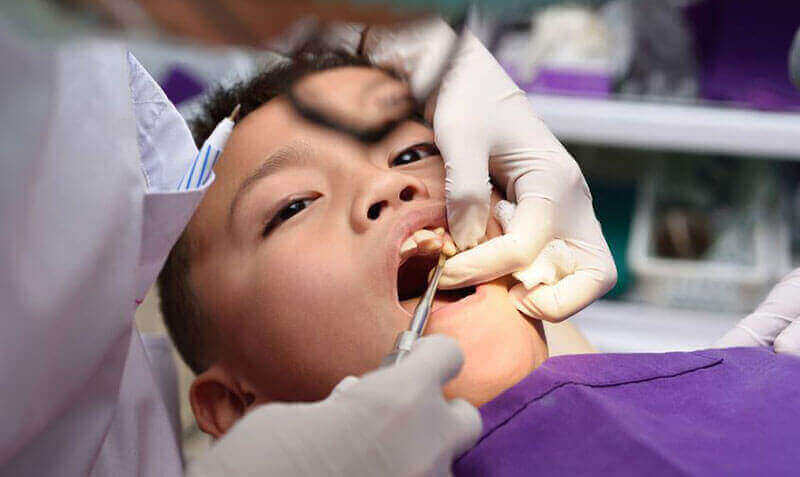
Dental extractions are performed for a wide variety of reasons. Tooth decay that has destroyed enough tooth structure to prevent restoration is the most frequent indication for extraction of teeth. Other indications are related to impacted or problematic wisdom teeth, and in some cases, also to make space for orthodontic treatment.
Most of the time, we try to preserve the tooth with other procedures instead of removing it. However if the damage is too severe, tooth extraction might be the best option.
Common reasons for tooth extraction include:
Dentists and oral surgeons perform tooth extractions. The dentist will either give you a local anesthetic to numb the area locally or a general anesthetic where you actually sleep through the procedure. Sometimes during extraction, if the tooth is impacted, it might have to be broken into smaller pieces before it is taken out to cause minimal damage to the tissue. After the tooth is taken out, a few stitches are placed to close the socket.
It is important to inform your dentist of any underlying medical conditions you have, or any drugs you take. The dentist will need to know your complete medical history as well as if you have any immune system issues, liver problems, heart problems or other relevant medical problems.
You’ll definitely want to take the day after your extraction off so that you can relax and heal. There may also be swelling that makes you look slightly different, or make it slightly harder for you to speak. You shouldn’t exercise, bend over, or do heavy lifting for the 1-3 days after your surgery.
For most patients, over the counter painkillers are sufficient. Your dentist will prescribe you medication if you have a special case that is more uncomfortable or have certain allergies. Take painkillers immediately after your extraction, while you’re still numb, that way you’ll have support as the local anesthetic wears off. Usually it's good to avoid aspirin, as this can be a blood thinner and prevent your blood from clotting.
It can vary quite a bit, depending on the surgery performed as well as how quickly you heal. Tha pain usually is noticeable but with painkillers, it's not severe and after a few days you start healing. At this point you might not even need any more painkillers. If you find that your pain and discomfort is increasing after week one, you may be experiencing dry socket and should get in touch with your dentist right away.
You will be more comfortable on a liquid and soft food diet immediately after your tooth extraction procedure. Most patients usually do this for a few days after treatment, until the initial pain has faded. Don’t use straws however, as the sucking motion can pull on your stitches and also cause fresh bleeding.
| Monday | 8.00 am - 12.00 pm 1.00 pm - 5.00 pm |
| Tuesday | 8.00 am - 12.00 pm 1.00 pm - 5.00 pm |
| Wednesday | 8.00 am - 12.00 pm 1.00 pm - 5.00 pm |
| Thursday | 8.00 pm - 12.00 pm 1.00 pm - 5.00 pm |
| Friday | 8.00 am - 12.00 pm 1.00 pm - 4.00 pm |
| Saturday | Closed |
| Sunday | Closed |